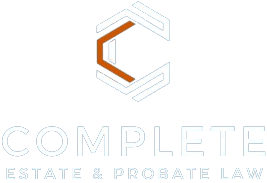“You have cancer, it isn’t good. There isn’t much time.” A friend recently received this news concerning her mother. After the fog of the initial shock dissipated, she called me and said, “What do I do? Do you have a list? She has nothing prepared.” After a lengthy conversation and many responses to questions that started with, “It depends” I think she devised a plan forward in this emergency. After this conversation, I resigned myself to making an Emergency, There Isn’t Much Time” plan of action for people. I’m not being a responsible attorney unless I first say, don’t wait until there is an emergency. Planning is best done in advance, not in crisis and with the help of competent, experienced estate planning attorney. This list isn’t legal advice, it’s practical advice to help you gather information needed when someone passes away. It assumes, there is no time to do estate planning, and the ill individual can communicate. The list covers the following categories. Assets, Decision Making, Remembrance, and Legacy.
The first thing I will advise is spend time and say all the things you want to say and hear what your loved one has to say to you. We can get into work and planning mode and miss this step. Assets can be worked out; you can’t get more time.
Assets- Ownership and beneficiaries are key.
- Ask your loved one about their assets, where they are, how they’re titled, where they keep statements, what account custodians hold their assets and how to access them. Think about real estate, bank accounts, CD’s, qualified retirement accounts (IRA’s, 401k’s, 403b’s, etc.), annuities, stock, life insurance, business interests. If your loved one has a financial advisor, this is a great place to start.
- Determine if they have beneficiaries on their assets. Beneficiary designation can be complex and have consequences for the beneficiaries, so it is best to talk to an estate planning attorney before you make these designations, especially if you have a minor or disabled beneficiary.
- Ask them who does their taxes and where you can locate their tax returns. These will prove helpful and provide valuable information.
Decision Making- What do they want for end-of-life care? These are such tough conversations, but when the decisions are needed you’ll be glad you talked about them
- Machines or no machines?
- Artificial food and hydration?
- Where do they want to pass away? Hospital, home, hospice house?
- Do they want an autopsy?
- Do they want to be cremated, buried, body donated to science, something else?
Remembrance- How do we celebrate you and honor your memory with friends and family?
- Who do they want to see or talk to before they pass?
- Where do they want to be buried, ashes scattered, interred, or ashes given to family?
- How do they envision their funeral? Favorite songs, Bible verses, poem? No funeral?
- What do they want communicated at their funeral?
- Who do they want notified when they pass away?
- What do they want to include in their obituary? Date and place of birth, spouse, parents, siblings, children, grandchildren, others. Education history, religious affiliation, Offices held, military offices, awards, recognitions, accomplishments.
Legacy- How you want us to keep you in our lives going forward.
- How do you want us to remember you?
- What do you want your loved ones to know about you?
- How can we celebrate your life?
- What traditions do you want us to carry on?
- What do you need to tell us?








